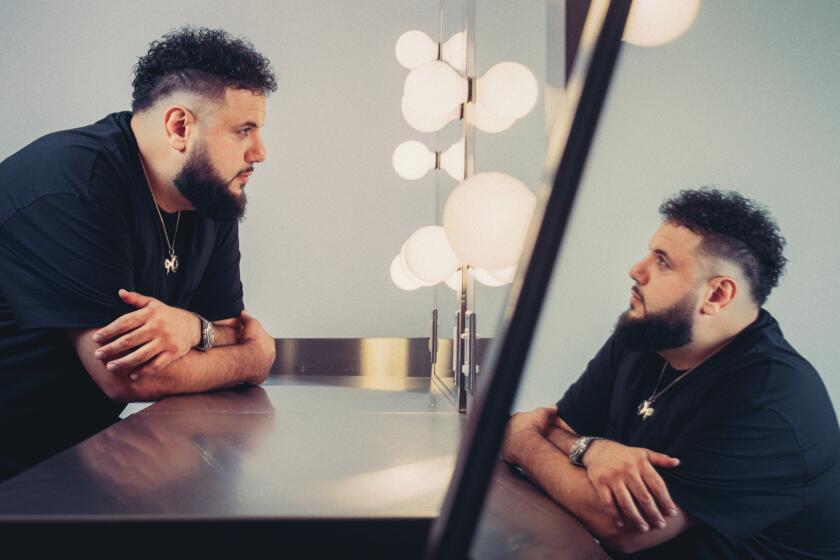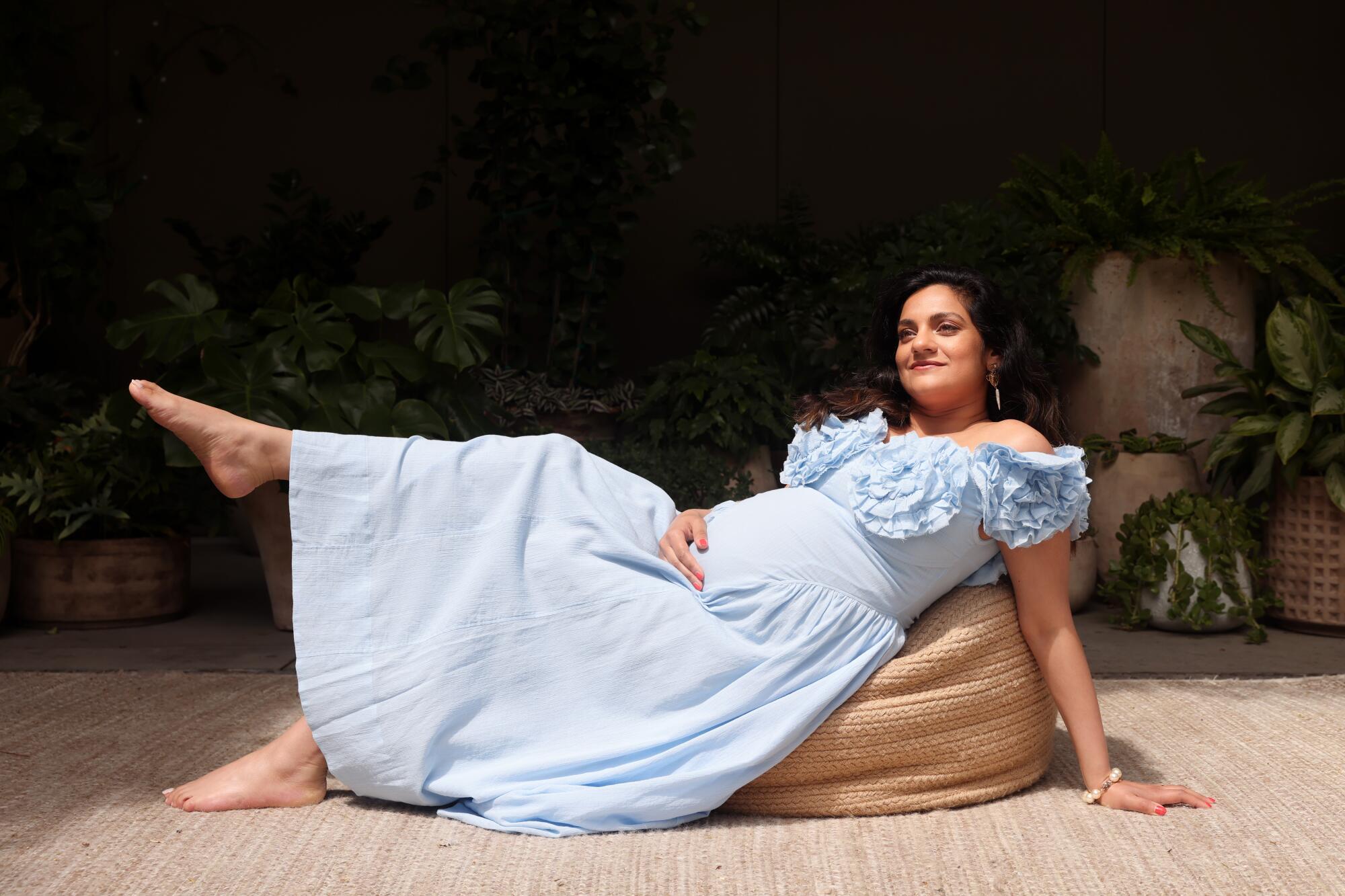
- Share via
There’s only one comedy series that could successfully pair punk rock rebellion with Pakistani education activist and Nobel Peace Prize laureate Malala Yousafzai and manage to come out on top. “We Are Lady Parts,” the irreverent British comedy about an all-girl Muslim punk rock band, continues to pit the sacred against the profane with a new season and songs such as “Malala Made Me Do It.” “Nobel Prize at 17/The baddest b— you’ve ever seen,” sing Lady Parts in their first cowpunk-themed number, proving once again that hijabs and hardcore are not mutually exclusive.
Created, written and directed by Nida Manzoor, Season 2 of the half-hour comedy (now available on Peacock) follows the trajectory of five Muslim women from vastly different backgrounds who unite under the banner of raucous rebellion. They are modest microbiologist and shredding lead guitarist Amina (Anjana Vasan), tattooed halal butcher and commanding singer Saira (Sarah Kameela Impey), aspiring graphic novelist and bassist Bisma (Faith Omole) and perpetually furious Iraqi drummer Ayesha (Juliette Motamed). Vaping niqabi Momtaz (Lucie Shorthouse) manages the band.
It’s hard to compete with Season 1’s fiercely unique hilarity, when the fledgling band voiced their truth in original songs such as “Bashir With the Good Beard,” “Voldemort Under My Headscarf” and “Ain’t No One Gonna Honour Kill My Sister But Me.” But Lady Parts does just that with its sophomore season. Viewers catch up with the band after a rewarding U.K. tour where they amassed a respectable “human not Russian bot” following. Now they’re poised to record their first full album with the legendary rock producer Dirty Mahmood. But nothing comes easy for the band that plays and prays together. In this edited conversation, Manzoor talks about the show, the band’s struggle, catharsis and the power of positive villainy.
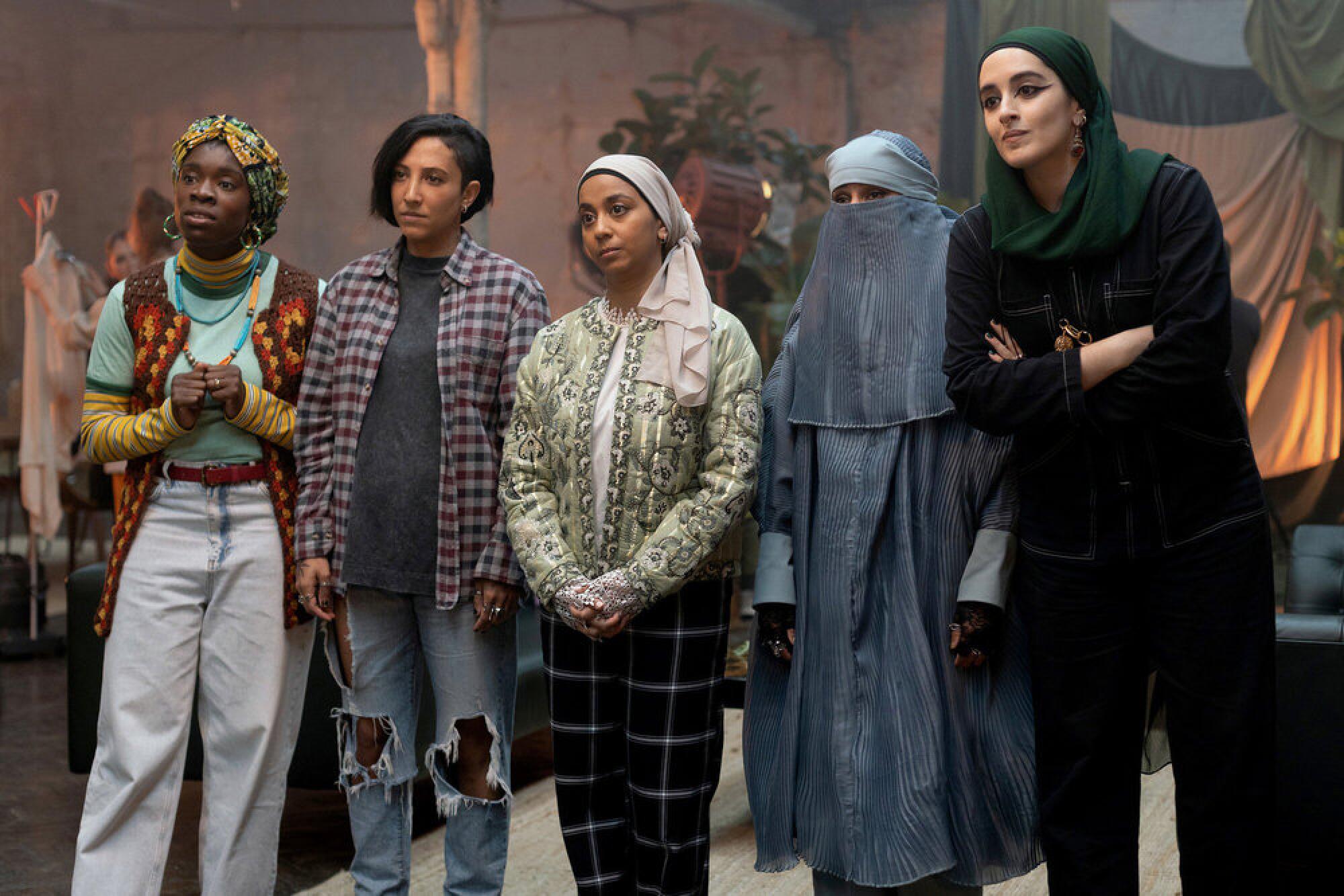
Season 1 of “We Are Lady Parts” was unlike anything else when it dropped in 2021. It tackled Muslim taboos and poked fun at colonial tropes about Islam inside of a “Spinal Tap”-inspired series. It’s since amassed critical acclaim, multiple awards and an avid fan base. How do you deliver a second act?
Like how do I top what we’ve already done? With Season 1, we’d done the hard work of setting the tone, setting up the characters and their world, so [with Season 2] I got to go deeper into these different characters. When I really started thinking about their stories, I became excited, and the pressure just sort of washed away. I trusted myself more, trusted my instincts. I also trusted my team and I knew what my cast could do, so I can write for them. I wondered if doing a second season might feel like I’m backtracking in my career, but it actually enabled me to level up because I was more confident.
Fans of Netflix’s ‘Never Have I Ever’ will love Peacock’s British import ‘We Are Lady Parts,’ which marks a seismic shift for Muslims on TV.
The real Malala Yousafzai appears in Season 2, in the Lady Parts’ video for “Malala Made Me Do It.” She sits atop a horse, looking the hero in a white cowboy hat. It’s perfection. How did you get her to do the show?
I’d heard Malala talking about her love of comedy, and she had such a dark sense of humor. She’s so witty. I thought, “This woman loves comedy so maybe I have a chance.” Essentially I wrote her this letter asking if she’d be in the show. I was scared to reach out because if she says no, I have to live with the fact that Malala said no. But she loves “Lady Parts.” She’s said something like, “It’s epic and I could watch 100 more episodes of the show.” I asked, “Will you sit atop a horse?” She said sure, she’d do it. She was so chill [on set] and so full of calm, making everyone feel relaxed. It’s like, this woman is a queen.
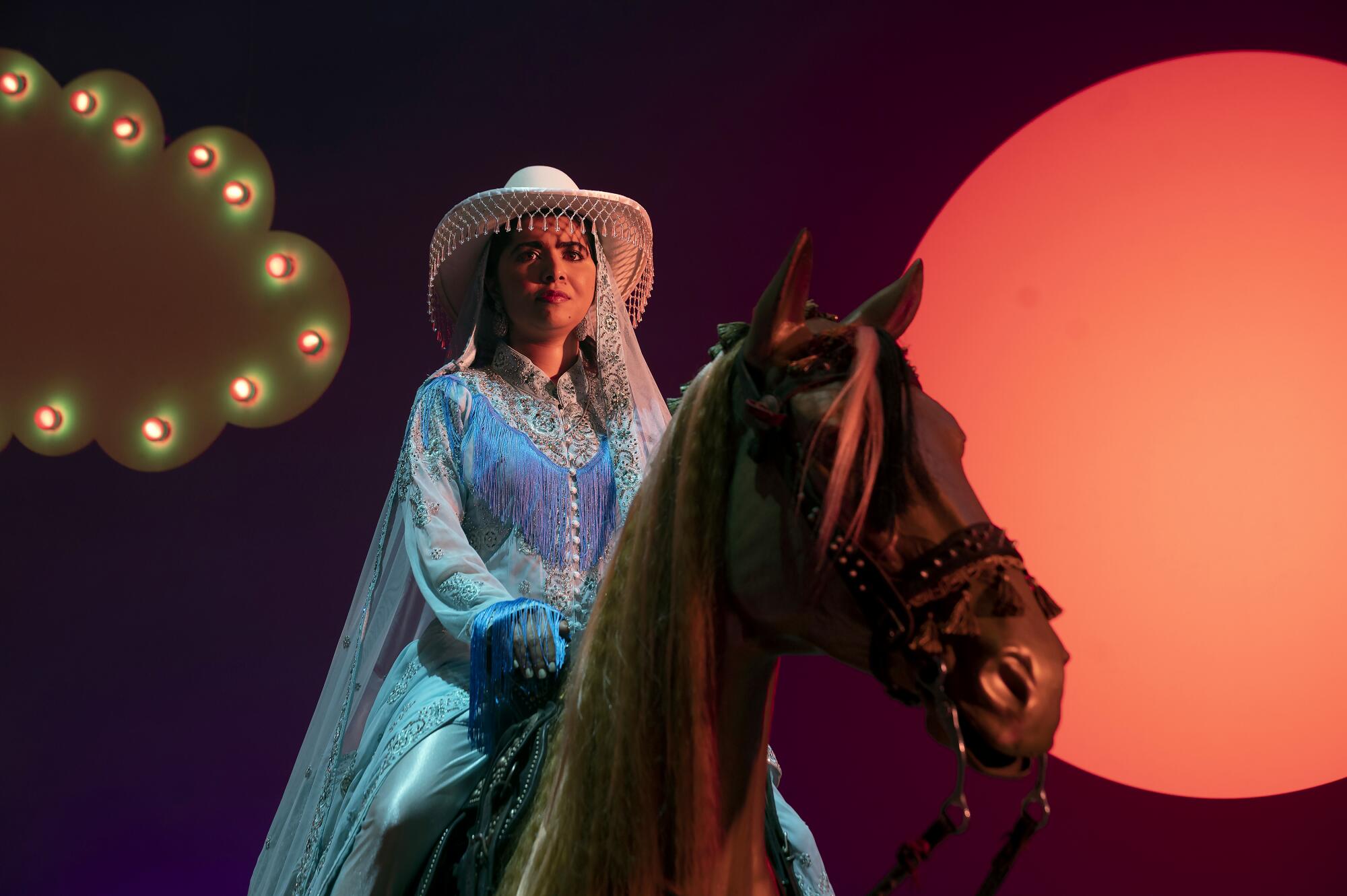
This season there’s a new femme-powered Muslim group that’s nipping at the band’s heels. Lady Parts aren’t all that threatened until they see the young trio’s name: Second Wife. “Oh f—, they’re good!” exclaims Ayesha. It’s wicked funny, and like so many moments in ”Lady Parts,” it uses biting humor to unpack an uncomfortable truth.
If you’re from a minority background, the industry can make you feel like there’s only one spot for one of you. In film and television, I don’t get into a writers’ room if the other South Asian writer [is hired]. I felt so lucky in my writers’ room. We were breaking out of that mentality, and realizing that we can bring each other up. We’re a group from different backgrounds, different points of view, different sexuality. Traditionally, we’d be going up for the same sort of positions, but here, we’re together. We were exploring [that traditional dynamic] because it’s real, it resonates. But it was also really fun to challenge Lady Parts, to shake them with this competent, younger group. I wanted Season 2 to feel like it’s matured. These are women who are in their late 20s, going into their 30s. It’s not an early 20s, coming-of-age sort of thing. It’s a different kind of coming of age. I wanted to push it to that.
Amina, the Don McLean-loving people pleaser of the bunch, is now in what she calls her “villain era.” She’s now doing things on her own terms, her own way. No more bending to the will of others.
I think I’m in my villain era [laughs]. I made the show I want to make. With Season 1, I was so riddled with self-doubt and anxiety about coming out to the world and their reaction. Now I’ve freed myself and am not as worried about how people are going to respond.
Yet Season 1 of “We Are Lady Parts” still felt really bold and fearless.
When I came up with the idea, I was really pushing back against all the Muslim stereotypes foisted upon me, like “Can you write a thing about honor killings?” So I created something that lent into my skills, which is comedy and music. And then I went into the different complexities and nuances of what it means to be a Muslim woman.
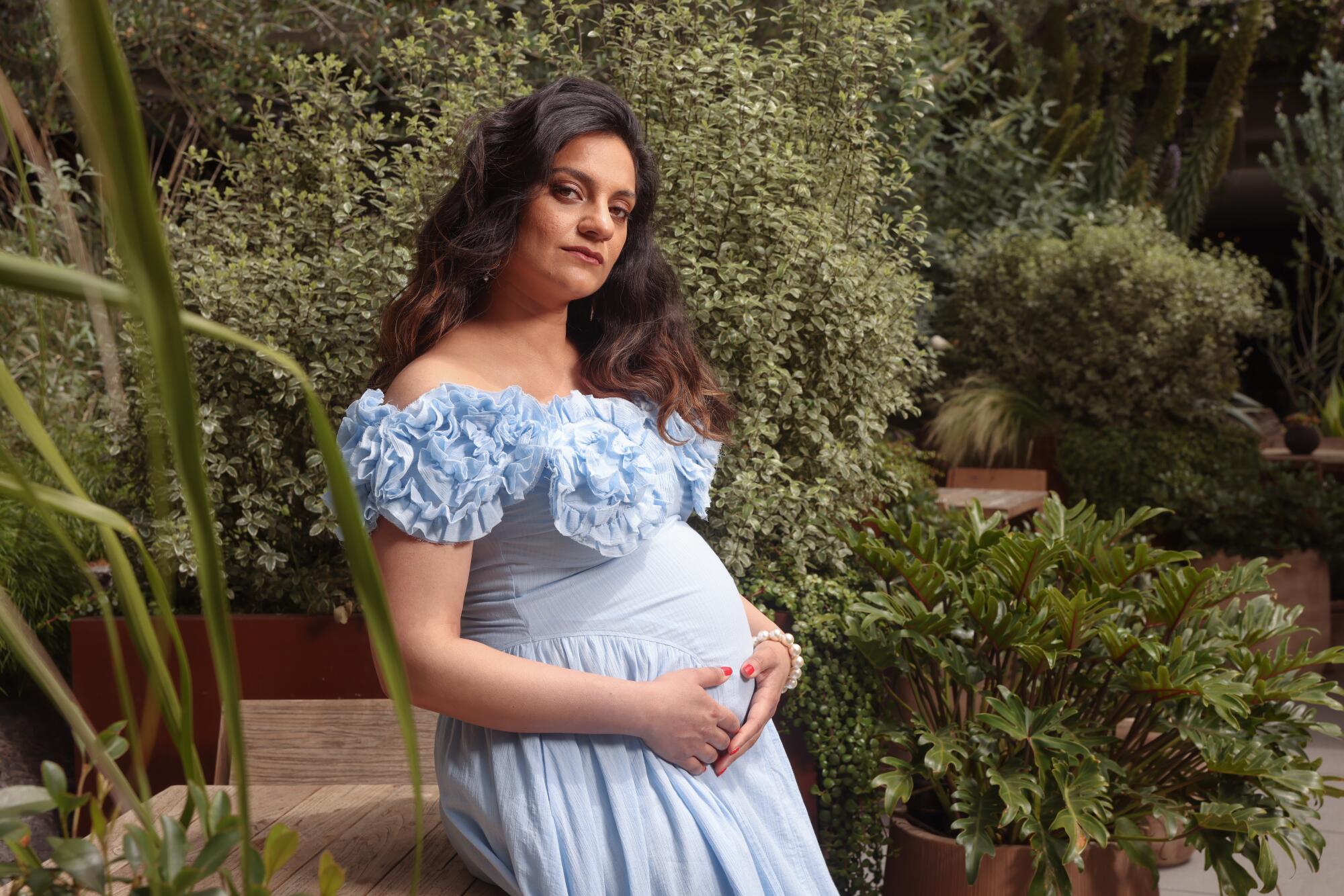
“Polite Society,” the 2023 film you wrote and directed, explores a similar theme of women pushing back against cultural and societal expectations. It’s a comedy about a South Asian teen who rebels against her sister’s arranged marriage with some of the baddest martial arts moves ever performed in a sari.
It’s part of my catharsis. [In a] South Asian household, it sometimes felt there was a path … being in this box of, “What I should and shouldn’t I do. How I should behave?” There’s an emboldened way of being that both punk music and that the action of “Polite Society” gives me that’s [somehow] tied into our expectations of how we should look, how we should behave, how we should conduct ourselves. There’s a physicality, a kind of rage that felt really exciting to portray.
In his Netflix comedy “Mo,” Amer navigates two cultures, three languages and a pending asylum request while hustling to support his Palestinian family.
You co-write the original songs in the show with your siblings. Did you all perform together in band at some point?
No, but my dad is very musical. He bought me a guitar when I was 8 years old. Both of my siblings play music and write songs. My dad would host these musical evenings at our house, and we would play together. He would play classical stuff, but he also loved ’60s and ’70s American folk music. My sister was much more grungy and punk. It was a real melting pot of music and styles. There’s was such a love of music. My brother is a composer, and he composed the score of “Polite Society.”
The show now has won a Peabody and BAFTA for best comedy writing. Given its popularity and the subject matter, it’s surprising there hasn’t been more blowback aside from a small ripple around the pilot episode.
When we say blowback, it was probably like 20 people. But when you’re online, it amplifies things. It was the first time I’d experienced that. It made me realize I was still struggling with not wanting to upset the apple cart. I felt like I was being a bad girl. But it made me reflect like, “Wait a second, who am I trying to please here?” The experience freed me because I realized I couldn’t please everyone. There’s so many different ways of being. We need more voices and points of view that show different ways of being a Muslim person. I can only tell my specific truth. We’re not a monolith. I can’t win with everyone, so I might as well win with myself.
More to Read
The complete guide to home viewing
Get Screen Gab for everything about the TV shows and streaming movies everyone’s talking about.
You may occasionally receive promotional content from the Los Angeles Times.
